Wednesday Sessions
November 1, 2023 | 12:00 PM–5:00 PM
< Back to Schedule-at-a-Glance
Session 1 | Higher Education's Employer Value Proposition
Personnel/Human Resources: 1 CPE Credit
Description
Campuses face major recruitment and retention challenges. An employer value proposition (EVP) can help you win the war for talent. TIAA has done extensive EVP research and run EVP workshops for CHROs. We’ve found that five elements belong in an EVP: total compensation, work-life balance, professional development, mission and purpose, and culture and community. Today we’ll focus mainly on two elements—total compensation and professional development—and why they are so important.
Learning Objectives
1. Understand the components of a strong employee value proposition (EVP).
2. Recognize how different EVP elements affect people at different career stages.
3. Gain insights into how your institution can create or enhance an EVP.
Speakers
 Bob Murray, Managing Director Retirement Solutions Higher Education, TIAA Bob Murray, Managing Director Retirement Solutions Higher Education, TIAA
Robert Murray leads our higher education business development group focusing on building and expanding our existing institutional pension relationships. Mr. Murray works with the Institutional Relationships team to identify and evaluate the needs our clients and bring solutions that meets those critical strategic objectives.
With over 30 years of experience, Mr. Murray has led various teams including our Pricing and Offer management group, Advice and Planning, and Higher Education Sales. Earlier in his career, he worked in several individual client facing roles including working in the regional office serving the SUNY system as the lead individual consultant.
Off the clock, he enjoys volunteering his time to help others. He joins a group that chaperones children with special needs on a pilgrimage to Lourdes, France. It takes a lot of hard work and planning to coordinate doctors, nurses and caregivers, but it’s an experience unlike any other.
A graduate of the University of New Hampshire, Mr. Murray earned his Bachelor’s of Arts Degree in Political Science.
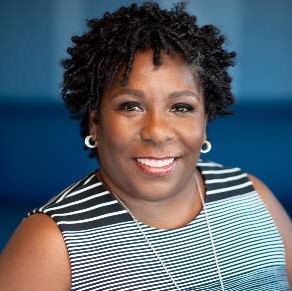 Shelly-Ann Eweka, Senior Director, Advice Solutions, TIAA Shelly-Ann Eweka, Senior Director, Advice Solutions, TIAA
Shelly is a nationally known financial planner and well-known speaker who has pushed to narrow the widening gap in retirement savings between genders and different races.
After nearly three decades in financial services, Shelly serves as an expert on the Woman-to-Woman Community section of TIAA.org. Within the firm, she launched a group called Black Indigenous Women of Color Financial Advisors/Planners of TIAA, and she’s a member of several other organizations – including ones for Black and female employees – that create leaders and influence culture.
Shelly is frequently quoted by news outlets, such Bloomberg, CNBC, USA Today, Black Enterprise and CNN. She’s also been asked to speak at high-profile events designed for female audiences, such as the Women’s Institute for a Secure Retirement (WISER) and the 2022 Women’s Network Conference, which is run by the N.C. chapter of the American Council on Education (ACE). In addition, she’s been part of a financial literacy webinar organized by George Washington University that was attended by national researchers, policy makers and reporters.
Shelly is a member of the Association of African American Financial Advisors, and she chairs the CFP Board’s Commission on Sanctions and Fitness and serves on the CFP Board Appeals Commission. She’s also an Arbitrator for FINRA and has chaired the Disciplinary and Ethics Commission of the CFP Board.
Shelly received a Bachelor’s of Science Electrical Engineering from the University of Pennsylvania, a Masters of Taxation from Northeastern University and a Certificate of Financial Planning from New York University.
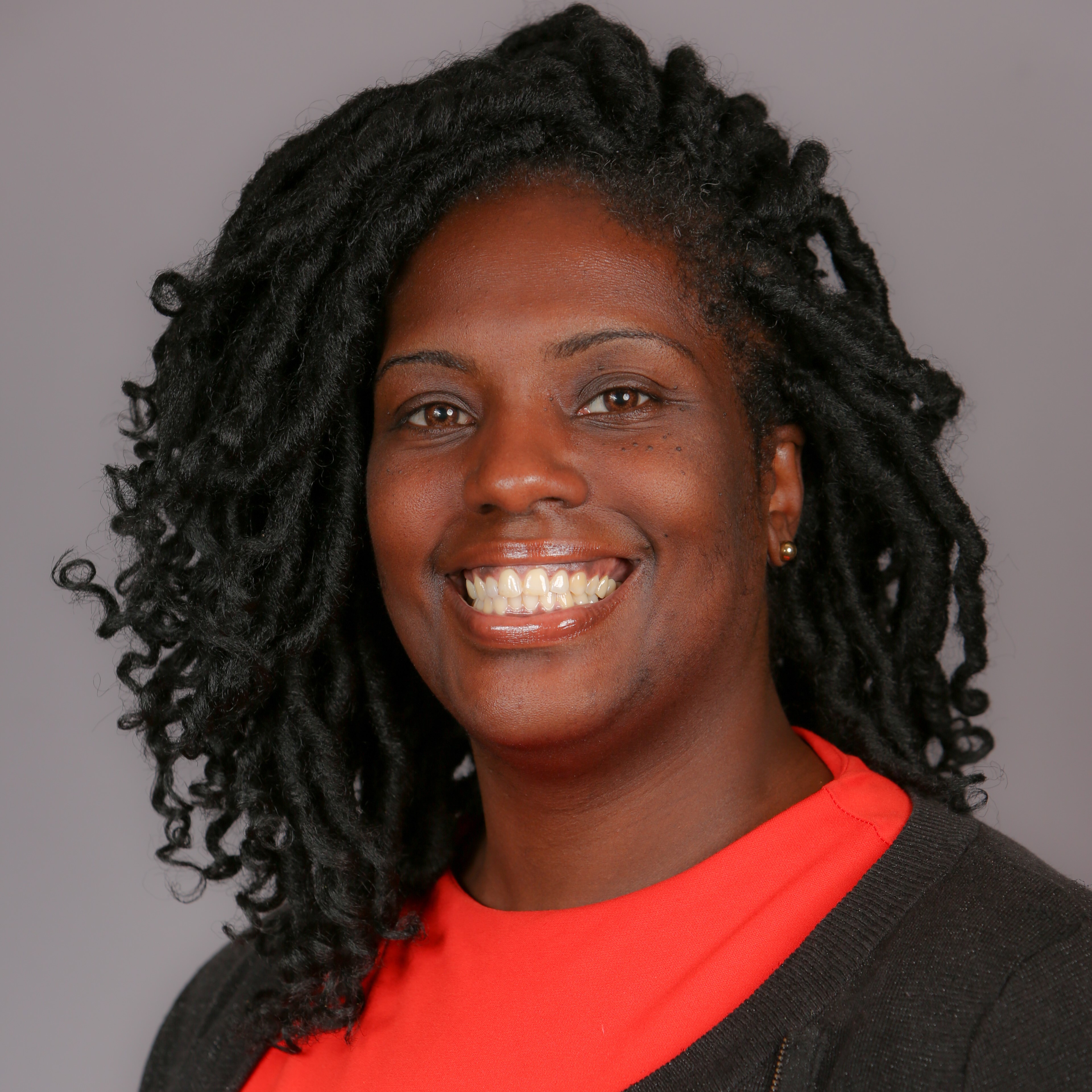 Antrameka Knight, Assistant Vice President, Budget & Planning, Kennesaw State University Antrameka Knight, Assistant Vice President, Budget & Planning, Kennesaw State University
Ms. Antrameka Knight currently services as the Assistant Vice President of Budget and Fiscal Planning of Kennesaw State University. She received her undergraduate degree in Economics at Dartmouth College and her Master of Business Administration from Cornell University. Prior to working at Kennesaw State University, she worked with local governments leading capital projects, annual budget planning, utility financial operations and strategic planning.
In addition to being a Certified Government Financial Manager (CGFM), Ms. Knight is a 2023 graduate of the University System of Georgia’s Executive Leadership program. She current serves as a board member for SACUBO (Southern Association of Colleges and University Business Officers) and is the chair for the Comprehensive & Doctoral Institutions Constituent Committee.
Charity Walker
Charity Walker is the Executive Director of Payroll, HR Benefits & Tax Specialization at Sam Houston State University, where she has been employed for the past 17 years. Charity was the Director of Payroll for 5 years prior to her current role. Charity received her bachelor’s degree in business administration with a major in accounting in 2004, and her master’s in business administration with an emphasis in accounting in 2007 from Sam Houston State University. Charity is also a graduate of the College Business Management Institute (CBMI).
< Back to Schedule-at-a-Glance
Session 2A | The Value of Visualization | 1:00 PM–1:50 PM
Finance: 1 CPE Credit
Description
This session will highlight the significance of transparent financial reporting and effective stakeholder communication in Higher Education institutions through data visualization. The session will include best practices for breaking down and conceptualizing large data sets as well as the tools that affect this process. Financial officers from the University of South Florida and Flagler College will share their experiences in using financial software to communicate with leadership – both from the perspective of a newly onboarded institution as well as a long-standing user.
Learning Objectives
- Learn about the impact of visualization on institutions’ communication with stakeholders.
- Understand the benefit of utilizing visualization tools in an institution’s financial planning.
- Learn about best practices and tools for transparent financial reporting.
Speakers
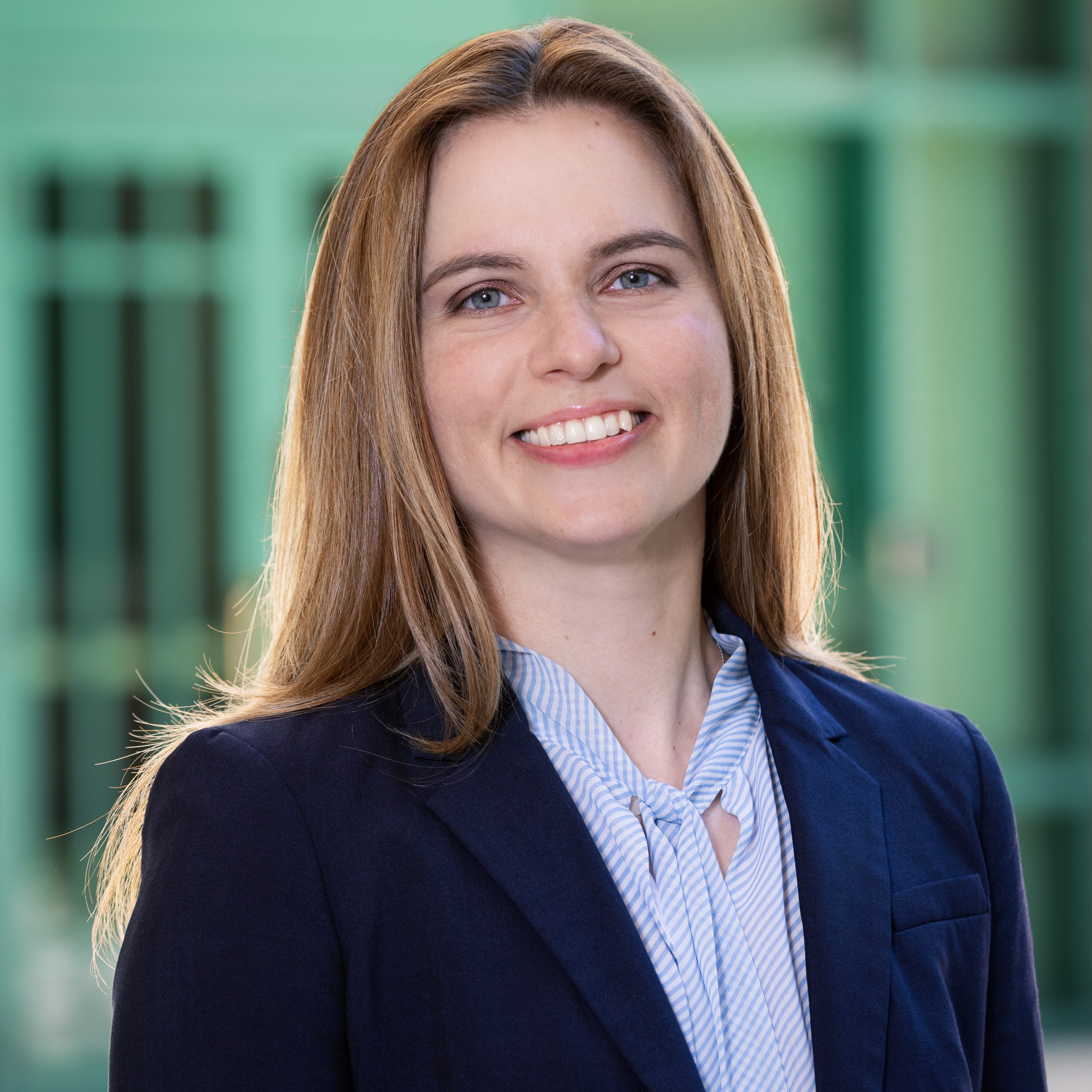 Masha Galchenko, Vice President of Resource Management & Analysis, University of South Florida Masha Galchenko, Vice President of Resource Management & Analysis, University of South Florida
Mariya (Masha) Galchenko is a USF Alum, she has a Masters degree in Economics and has worked at USF for the last 17 years. In her USF career she has worked at the Honors College, Student Affairs, and now Business & Finance. Currently Masha is the Associate Vice President for Budget and Financial Analysis and is a key member of the senior leadership team in Business & Finance and Strategy in the University of South Florida. She oversees a team responsible for financial planning, budgeting, forecasting, financial analysis, and reporting and works closely with senior leaders across the large and complex institution with multiple funding sources to provide strategic financial planning and analysis to support the achievement of the institution's goals and objectives. In addition, she is currently leading University's budget model re-design.
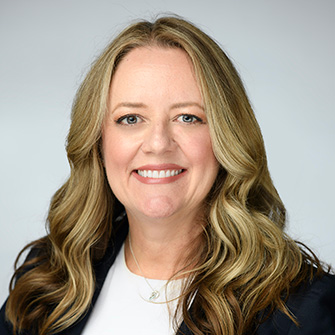 Stacey Matthews, Vice President of Business Services and CFO, Flagler College Stacey Matthews, Vice President of Business Services and CFO, Flagler College
Stacey has over 22 years in higher education currently serving as the Vice President of Business Services and Chief Financial Officer at Flagler College. She was previously the Controller and Director Budgets and Tax Compliance at Flagler College. In addition, she served as Business Officer at St. Barnabas Episcopal School and Director of Budgets and Investments at Stetson University. She has a masters degree in accounting and bachelors in accounting from the University of Alabama at Birmingham.
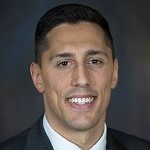 Michael Pepe, Budget Analyst, Flagler College Michael Pepe, Budget Analyst, Flagler College
Michael Pepe has an MBA in Finance from Hofstra University and a Bachelor’s degree in Accounting from Marist College. He has over 11 years of higher education experience working in multiple departments; including financial aid, financial planning, as well as budget and reporting. He currently serves as the Budget Analyst at Flagler College, and was previously the Director of Financial Planning and Analysis and the Director of Student Finance at the Zucker School of Medicine at Hofstra University.
 Marc Pitcher, Director of Sales, Synario Marc Pitcher, Director of Sales, Synario
Marc Pitcher joined PFM with over 20 years of sales and business leadership experience and is in our Philadelphia office where he manages all sales and business development efforts for Synario. Prior to joining Synario, Marc worked as a technology sales leader managing teams and providing SaaS and hardware products and services. He has experience working within a variety of business verticals, including financial services, Internet of Things (IoT), Transportation and Research. Marc has also been an entrepreneur and co-founded several companies, including a Web 1.0 streaming media company and a FinTech company.
< Back to Schedule-at-a-Glance
Session 2B | Campus Resiliency – Lessons Learned | 1:00 PM–1:50 PM
Specialized Knowledge: 1 CPE Credit
Description
Resiliency on college campuses range from student mental health and well-being, overcoming the challenges of being a student, to business decisions impacting the overall comfort and performance of aging infrastructure and buildings. Resiliency is about overcoming obstacles. The session will offer participants an opportunity to actively engage with the panel to help define the meaning of resiliency, the impact and significance to your campus, and the funding currently available.
Learning Objectives
- Define and discuss what resiliency means. Understand the various roles in which resiliency is applicable on campus.
- Facilitate an interactive discussion with audience participation sharing “lesson learned” regarding resiliency.
- Understand recent Federal programs available to fund resiliency initiatives.
Speakers
 Ryan Ball, Higher Education Program Manager, Schneider Electric Ryan Ball, Higher Education Program Manager, Schneider Electric
Ryan Ball serves as Schneider Electric’s Program Manager for Higher Education and State Government in the Southeast. Ryan works with Higher Education clients focusing on building performance, comfort, safety/security, and resiliency/sustainability goals. Explores creative funding solutions such as P3 (Public Private Partnership), "off-books" financing, Contingent payment, and Energy as a Service (EaaS) to fund a variety of on-campus needs.
Ryan has over 15 years of direct higher education experience in various executive positions from Vice President to Campus President throughout Tennessee, Texas, Georgia, Kansas, Missouri, and Wisconsin. Ryan also serves on the Tennessee Board of Regents Foundation for the College System of Tennessee – Finance Committee.
Ryan has a BS/Business Marketing and an MBA/Technology Management. As well as served 4 years as an Operation Specialists in the US Navy.
 Barry Wilhelm, Sales Team Leader, Schneider Electric Barry Wilhelm, Sales Team Leader, Schneider Electric
Barry has 19 years’ experience working with Schneider Electric to help deliver Energy/Sustainability/Resiliency Solutions to higher education clients in the Southeast Region. His responsibility as a Senior Program Manager is to lead our regional team in business development strategy, project development delivery, and contract and financial negotiations.
Barry represents Schneider Electric as a representative to a number of key trade organizations focused on Higher Education. He enjoys working with a team to create success for both clients and Schneider Electric and has a results-oriented focus with a proven track record enabling clients to make over $150M of energy and infrastructure improvements over the last 19 years.
< Back to Schedule-at-a-Glance
Session 3A | Maximizing Dining Revenue and the Student Experience | 2:00 PM–2:50 PM
Specialized Knowledge: 1 CPE Credit
Description
Because today’s students are more socially engaged, environmentally focused, and value conscious, campus dining options must address these factors to meet their evolving needs and build campus loyalty. The traditional financial meal plan model - where freshman primarily support the dining program and infrastructure - is outdated for today’s marketplace. To achieve a relevant and successful campus dining program, it is important to look at new ways to engage the entire campus population with a value equation that delivers on the goals of the University and the expectations of students and parents.With this in mind, we will discuss how universities are successfully leveraging Aramark’s proprietary meal plan optimization analytics process, which allows for updates to ensure meal plan alignment with market trends and dining choices, across all day parts and lifestyle options.
- At North Carolina Central University, the team offers meal plan options that drive flexibility and value while meeting the needs of Gen Z students, increasing student satisfaction and program engagement.
- The University of Louisville is also driving student involvement and campus connections with a 365-day marketing approach to the meal plan program, in collaboration with Auxiliary Services.
Learning Objectives
- Consider strategies for creating flexible meal plan options and easy paths to purchase that accommodate students where and when they want to dine, while effectively balancing demand and enrollment shifts.
- Gain an understanding of the benefits of right sizing your meal plan program to meet student needs, align with their lifestyles, enhance their campus experiences, and build loyalty – which in turn drives your program revenue.
- Learn how Commuter Declining Balance Meal Plans can facilitate a sense of inclusion and belonging, while achieving greater equity in dining program participation and cost support.
Speakers
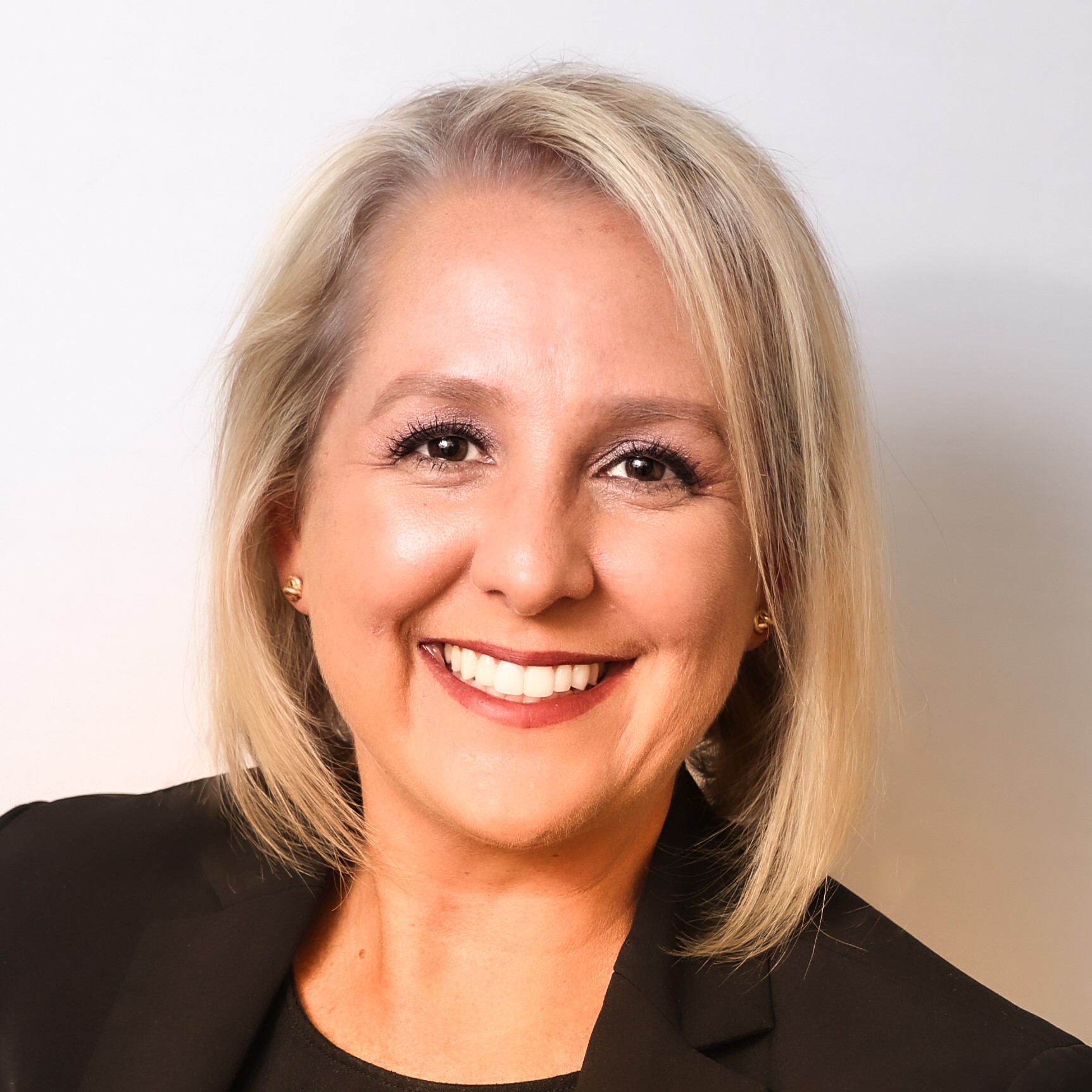 Theresa Butler, Vice President, Marketing and Student Experience, Aramark Collegiate Hospitality Theresa Butler, Vice President, Marketing and Student Experience, Aramark Collegiate Hospitality
Theresa Butler is the Vice President of Marketing and Student Experience for Aramark Collegiate Hospitality. She leads meal plan strategy, branding, consumer engagement and digital communication to support over 250 campuses. Theresa leads the meal plan growth team that is responsible for analyzing meal plan purchase behaviors and optimizing structures through a proprietary process called Meal Plan Optimization. She has over 18 years of higher education hospitality experience. Theresa holds a Bachelor of Science degree in Business and Marketing from the University of Central Florida and an M.B.A. from Mississippi State University. She resides in Holly Springs, NC with her husband Chris and two sons, Hudson (10) and Cade (6).
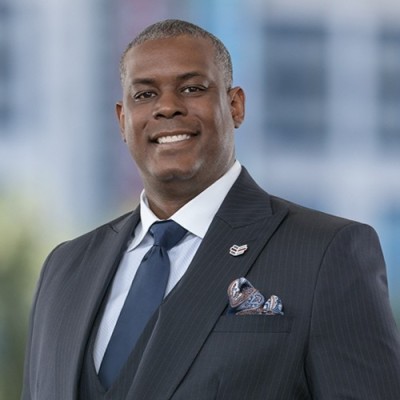 Derrick Magee, Associate Vice Chancellor – Campus Enterprises, Division of Administration & Finance, North Carolina Central University Derrick Magee, Associate Vice Chancellor – Campus Enterprises, Division of Administration & Finance, North Carolina Central University
In his role, Magee provides leadership, vision, and management support to Campus Enterprises, which includes Dining Services, University Bookstore, Eagle Card Office, Mail Services, Ticket Office, Eagle Copy, Central Graphics, Passport Services, Marketing, Concession and Vending. He interacts daily with members of the department, administration and faculty, contract representatives, student organizations, alumni, parents, contractors, and vendors. Magee joined NCCU in October 2015 as associate athletics director for Finance and was named senior associate athletics director for Finance and Administration in 2017. Prior to NCCU, Magee was the senior associate athletics director for Business Affairs and director of Auxiliary Enterprises at Alabama State University (ASU), associate athletics director and chief business officer at the University of Cincinnati, and assistant athletics director for Internal Operations and director of Finance at the University of the Pacific in Stockton, California. Magee earned his MBA from California State University and is currently pursuing a Doctor of Business Administration degree from the University of North Carolina at Charlotte.
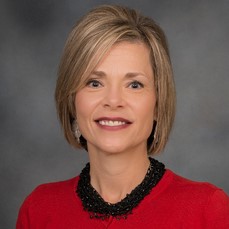 Lisa Ennis, Director of Auxiliaries and Asset Management, University of Louisville Lisa Ennis, Director of Auxiliaries and Asset Management, University of Louisville
After spending 20 years in the public sector, Lisa came to the University of Louisville in 2011 She started her Louisville career in Advancement Services, and then moved to Inventory Control, where she quickly began managing the Stockroom, Central Receiving, Inventory Control and Surplus departments. In 2019 Lisa became the Director of Procurement Services, and in 2021, took on the role of Director of Auxiliary Services and Asset Management, with responsibilities for Auxiliary Services, Inventory Control, Central Receiving, and Surplus departments. She works very closely with Aramark, Follett, and Canon, overseeing the day-to-day operations with these partners to ensure success.
< Back to Schedule-at-a-Glance
Session 3B | Harnessing AI for Financial Resilience in Universities: From Insight to Impact | 2:00 PM–2:50 PM
Information Technology: 1 CPE Credit
Description
In this presentation, we will explore the transformative potential of Artificial Intelligence (AI) in higher education finance and operations. AI is no longer a distant concept; it is now top of mind for university leaders. Join us for AI 101 to learn about the current and future potential impacts of AI in higher education finance and operations. In this session, we will explore these critical concepts:
- Common AI terminology that higher education finance leaders should understand
- What AI is capable of today, and what it is not
- How to answer the question "are we using AI for that?"
- The AI outlook “what will the machines take over first?"
- What should be done today to prepare for AI?
Join us for an engaging session that will demystify AI and provide you with the knowledge and insights needed to navigate the evolving landscape of AI in higher education finance and operations. Be prepared to ask the right questions, set realistic expectations, and take proactive steps to embrace the transformative potential of AI in your institution.
Learning Objectives
- Demystifying AI: Gain a clear understanding of common AI terminology and concepts that are relevant to higher education finance leaders, enabling you to navigate discussions and make informed decisions.
- Realistic Expectations: Understand the current capabilities and limitations of AI in higher education finance and operations. Learn how to separate hype from reality and identify areas where AI can truly make a meaningful impact.
- Preparing for the Future: Discover actionable steps you can take today to prepare for the integration of AI in your university's finance and operations. Explore strategies to ensure a smooth transition and maximize the benefits of AI while addressing potential challenges and ethical considerations.
Speakers
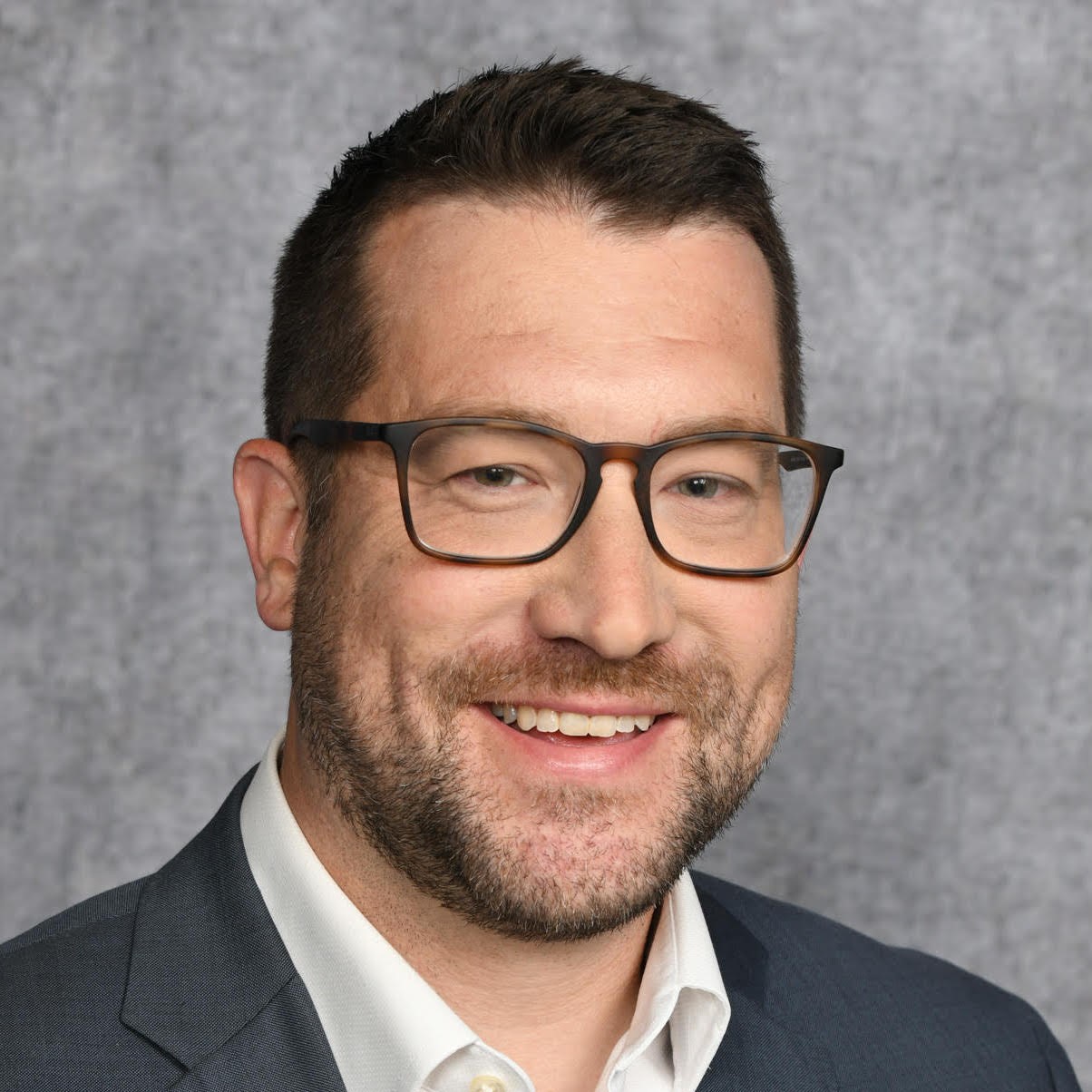 Russ Owen, Director, Client Relations, TruEd Consulting Russ Owen, Director, Client Relations, TruEd Consulting
Russ is a Director at TruEd Consulting. Prior to joining TruEd, Russ held a variety of positions including Executive Director of Finance and Budget at Embry-Riddle Aeronautical University, Implementation Consultant at Kaufman Hall, and Mayor of New Smyrna Beach. His duties surrounded all aspects of annual revenue and expense budgeting, long range planning, capital planning, and executive reporting in a multi-campus environment and the implementation of budgeting and planning software for other higher education clients. As Mayor, he also provided executive leadership for a team of 300 employees in a community of 30,000 citizens. Russ has more than numerous years of consulting experience in higher education, including work with leading public and private institutions of various sizes. His additional industry experience includes software, personal finance, and the public sector. Russ holds a B.S. in Business Administration and a Master of Business Administration from the University of Central Florida. Russell was also the 2022 Young Government Officer of the Year.
Kelly Epting, Associate Vice President for Finance and Budget, University of South Carolina System
Kelly Epting, CPA, MBA is the Associate Vice President for Finance and Budget at the University of South Carolina and CFO of the South Carolina Research Foundation. With nineteen years in higher education, she has specialized in university budgeting, planning and analytics, foundation accounting and grants management. Kelly began her career in auditing with Deloitte. She has a BA in accounting from Furman University and an MBA from the Darla Moore School of Business at the University of South Carolina.
Neal Goffman, Vice President, Anaplan Public Sector, Anaplan
Neal Goffman is a VP leading Anaplan's Public Sector business unit. Neal has been working with public sector clients since 1996. His experience includes deep planning expertise, business intelligence, financial management, advanced analytics and AI. Neal has over 30 years of experience partnering with a variety of public sector institutions many of whom were colleges and universities on issues related to financial management and analytics. Neal began his AI career as one of the original executives leading Watson solutions in Public Sector for IBM. After IBM, Neal led a planning software company that specialized in AI-based forecasting and optimization. Neal's passion has been helping public sector clients improve efficiencies, deploy solutions to help automate business processes and leverage business intelligence to improve transparency and outcomes.
< Back to Schedule-at-a-Glance
Session 4A | Finance Leadership Confidential, Real-life Career Stories and Navigating Industry Opportunities | 3:10 PM–4:00 PM
Personal Development: 1 CPE Credit
Description
Join us for an enlightening panel discussion featuring CFOs and Finance Leaders from Higher Education campuses and Chartwells Higher Ed, as they share their remarkable career paths and provide invaluable insights on building transferable skills for finance professionals. This engaging session is designed to inspire attendees and equip them with the knowledge and strategies needed to excel in their own careers. The panelists will captivate the audience with their diverse backgrounds and experiences, offering a panoramic view of the paths that led them to their current roles. By exploring their unique journeys, attendees will gain a broader understanding of the multifaceted opportunities available in the finance field, highlighting the versatility and adaptability required for success. The discussion will delve into the essential transferable skills that finance professionals can cultivate to enhance their marketability and accelerate their career growth. The panelists, drawing from their expertise, will unveil the key skills they have found instrumental in their roles, such as financial acumen, strategic thinking, leadership, and effective communication. Attendees will discover actionable steps to develop and refine these skills, ensuring their professional advancement in an ever-changing industry. Moreover, the panelists will shed light on the importance of building a strong foundation in finance. They will share insights into educational backgrounds, professional certifications, and early career experiences that have paved the way for their success. Attendees will gain valuable advice on continuous learning, mentorship, and networking, empowering them to establish a solid professional framework. Navigating challenges and seizing opportunities is a crucial aspect of any finance professional's journey. The panelists will candidly discuss the obstacles they have encountered and the strategies they have employed to overcome them. Attendees will glean practical insights on managing risk, turning challenges into growth opportunities, and leveraging their skills and experiences to advance their careers. This interactive session will encourage active audience participation, providing an opportunity for attendees to directly engage with the panelists. Attendees will have the chance to pose questions, seek advice, and benefit from the collective wisdom of these esteemed leaders. Don't miss this exceptional opportunity to learn from industry leaders and gain valuable insights into career development and transferable skills in finance. Join us for a dynamic panel discussion that will inspire, inform, and equip you for success.
Learning Objectives
- Recognize key transferable skills for finance professionals.
- Gain strategies for overcoming challenges and seizing opportunities.
- Apply actionable steps for professional development.
Speakers
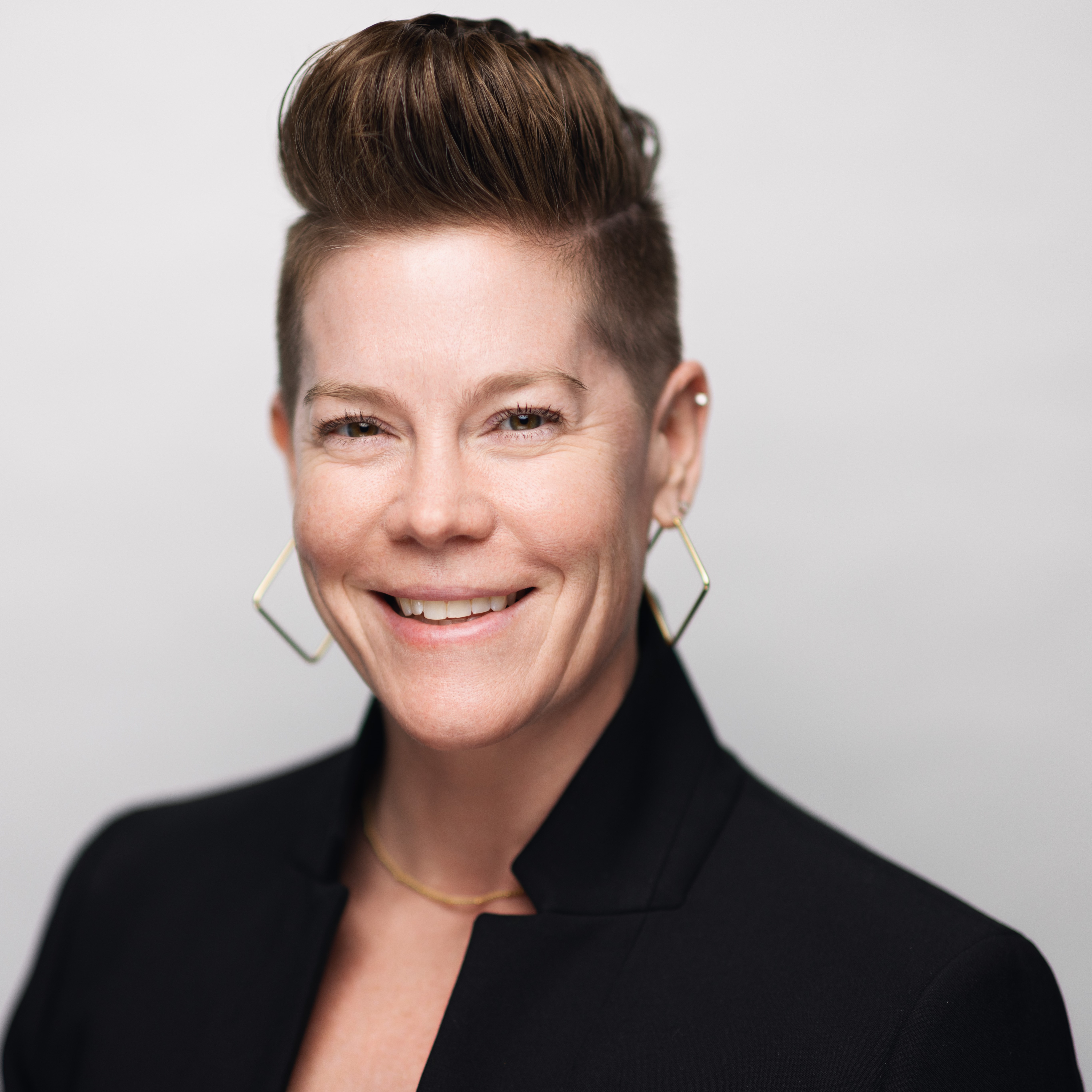 Kelsey Harmon Finn, Vice President of Ambassador Community Relations, Compass Group USA Kelsey Harmon Finn, Vice President of Ambassador Community Relations, Compass Group USA
Kelsey joined Compass Group in 2022 as the Vice President of Ambassador Community Relations. Kelsey is responsible for developing strategic relationships within Chartwells Higher Ed as well as other Compass sectors. In this role she identifies client opportunities, critical industry business challenges and best in class solutions. Kelsey has extensive experience in the Higher Education arena. Among other roles, Kelsey served as the CEO of NACAS (2016-2021) and Vice President and General Manager of Michigan Sports Properties as a part of LEARFIELD (2021-2022). She focuses on bringing together operations, sales, and client partners to leverage resources to provide the best possible service and experience for students.
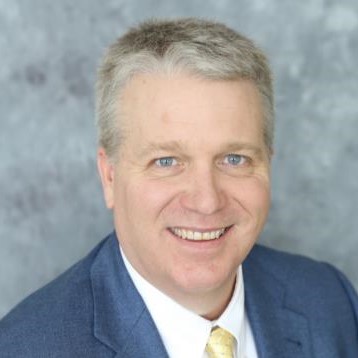 Seth Ferriell, CEO, SSC Services for Education Seth Ferriell, CEO, SSC Services for Education
Ferriell earned a Bachelor of Business Administration degree in Finance from the University of Kentucky and has an Educational Facilities Professional Certificate (EFP). His career took a significant turn when he joined SSC in 1991 as a Manager in Training. Seth’s commitment to operational excellence drove him into various leadership roles, from Unit Director to Regional Manager for B&I and Shopping Centers to Division President and now CEO. His exceptional ability to develop and implement innovative solutions that meet the unique needs of educational clients is the driving force behind SSC’s success. Under Seth’s leadership, SSC was awarded the largest higher education account in the company’s history at Texas A&M University System. SSC is the only facility provider of custodial, grounds, and plant operations and maintenance on the College Station main campus and eleven regional campuses throughout Texas.
 John Summers-Miller, CFO, Chartwells Higher Education John Summers-Miller, CFO, Chartwells Higher Education
John Summers-Miller joined Chartwells Higher Education in January 2021 as Chief Financial Officer. Among his peers, he is known for leveraging deep subject matter expertise in conjunction with the big picture perspective to collaborate and engage teams to deliver results in key performance areas. John has over 30 years of experience in financial leadership roles in the food service industry, having held senior positions at Sysco, US Foods, Kellogg's and Kraft Foods. John is a United States Army veteran who enjoys grilling, woodworking, golf and downhill skiing. He received his Master of Business Administration in Finance from Walden University and his undergraduate degree from Western Michigan University.
 Jeremy DiGorio, Vice President of Finance and Chief Financial Officer, Stetson University Jeremy DiGorio, Vice President of Finance and Chief Financial Officer, Stetson University
Jeremy DiGorio currently serves as Vice President of Finance and Chief Financial Officer at Stetson University, located in Central Florida. He has worked in Higher Education for over 15 years at multiple institutions in many different functional areas. Jeremy also serves at 3rd Vice President for SACUBO.
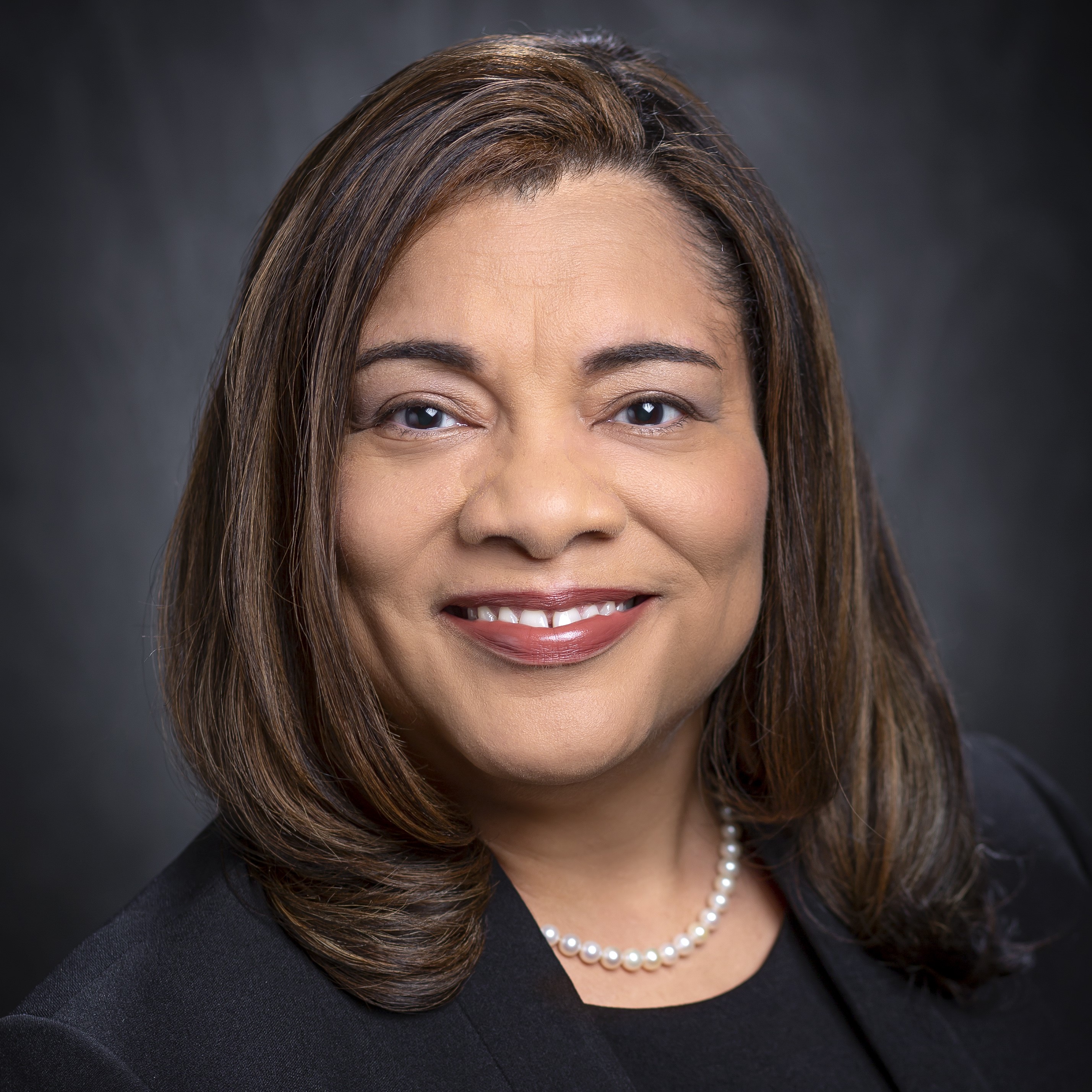 Kimberly Lewis, Executive Vice President of Finance and Administration & Chief Administrative Officer, Louisiana State University Kimberly Lewis, Executive Vice President of Finance and Administration & Chief Administrative Officer, Louisiana State University
Vice President Lewis is a 1998 graduate of the LSU Law Center. She attended LSU where she received her B.A. in Political Science in 1993 and a M.A. in Public Administration in 1995. Before becoming Executive Vice President of Finance and Administration & Chief Administrative Officer at Louisiana State University, Ms. Lewis served as Secretary of the Louisiana Department of Revenue for six years. Under Lewis’ leadership, the Department collected more than $10 billion in state taxes during the 2021 fiscal year. Other responsibilities of the Department included collecting outstanding debts owed to state and local government through the office of debt recovery, and the regulation of charitable gaming as well as the sale of alcohol, tobacco and CBD through the Office of Alcohol and Tobacco Control. Before serving as Secretary of Revenue, Ms. Lewis was a partner in the Tax & Estates Practice Group at Jones Walker, LLP focusing primarily on state and local tax matters, economic development financing, incentives and government relations.
Before joining Jones Walker, Ms. Lewis served as Special Counsel for the Office of the Governor of the State of Louisiana, where she provided legal counsel to Governor Kathleen Babineaux Blanco and served as Senior Policy Advisor on Revenue, Economic Development and Insurance Policy. She also worked for six years at the Louisiana Department of Revenue, serving as Assistant Secretary for the Office of Legal Affairs and Confidential Assistant to the Secretary. From 1998–2000, she served as a judicial clerk to the Honorable Justice Bernette J. Johnson of the Louisiana Supreme Court.
Vice President Lewis previously served as an ex-officio member of the Resilient Louisiana Commission, which was charged with helping chart the state’s path from COVID-19 to a stronger and healthier economy that is more resistant to future disruptions. She also served as President of the Federation of Tax Administrators Board of Trustees and the Louisiana Sales and Use Tax Commission for Remote Sellers. She was the 2016-2017 President of the Southeastern Association of Tax Administrators (SEATA), and is a highly sought-after speaker on matters involving income, franchise, sales/use, severance, ad valorem property, and other tax issues. Since 2016, she has been a member of the Sales Tax Streamlining and Modernization Commission, the Task Force on Ad Valorem Tax Structure, and the Transportation Infrastructure Funding Task Force. She co-chaired the Task Force on Structural Changes in Budget and Tax Policy and chaired the Louisiana Retail Food and Beverage E-Commerce Task Force. Ms. Lewis was listed in The Best Lawyers in America© in 2015 in the area of Tax Law, and in the 2014 edition of Louisiana Super Lawyers in the area of Tax. She has chaired the Section of Taxation for the Louisiana State Bar Association. In 2015, she received the Distinguished Achievement award from LSU Law Center and the Diversity Journal recognized her as one of the “Women Worth Watching.” In 2016, The LSU E.J. Ourso College of Business Public Administration Institute honored Ms. Robinson as the Distinguished MPA Alumnus.
< Back to Schedule-at-a-Glance
Session 4B | Six Essential Strategies for Accurate Tuition Revenue Planning| 3:10–4:00 PM
Finance: 1 CPE Credit
Description
Accurately forecasting tuition revenue is key to growth and profitability, but when accounting for factors such as changing demographics, discounted tuition, and student melt, tuition planning becomes a challenging and complex process. To make reliable predictions, institutions must be able to evaluate various drivers and assumptions and adjust as conditions evolve throughout the year. By adopting the right approach and incorporating proven tuition planning best practices, colleges and universities can develop accurate forecasts of tuition revenue, understand how different scenarios may impact financial outcomes, and coordinate efforts across departments. This session will share six essential best practices higher education institutions can follow to overcome tuition planning challenges and more accurately forecast tuition and fee revenue.
Learning Objectives
- List six essential strategies for accurate tuition revenue planning.
- Define the data sets required to identify and evaluate trends and external factors that may impact tuition and fee revenue.
- Understand the value of planning for best/worst-case scenarios as well as key metrics to monitor.
Speakers
 Disha Venkatesan, Regional Sales Executive, Syntellis Disha Venkatesan, Regional Sales Executive, Syntellis
Bio coming soon!
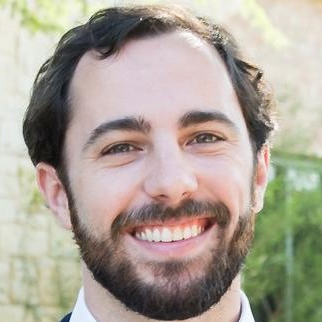 Thomas Ewing, Senior Software Implementation Consultant, Syntellis Thomas Ewing, Senior Software Implementation Consultant, Syntellis
Bio coming soon!
< Back to Schedule-at-a-Glance
Session 5A | GASB Update for Public Institutions | 4:10 PM–5:00 PM
Accounting (Governmental): 1 CPE Credit
Description
GASB is continually generating new standards and updating authoritative guidance. During this session, the presenter will review new guidance, recently implemented standards, and standards in the pipeline. He will also spend some time discussing NACUBO’s recent advisory on accounting and reporting for tuition and fee discounts.
Learning Objectives
- Explain GASB requirements.
- Discuss the cross-campus collaboration needed for new and upcoming accounting standards.
- Outline the timing of upcoming guidance and ways to react and prepare.
Speakers
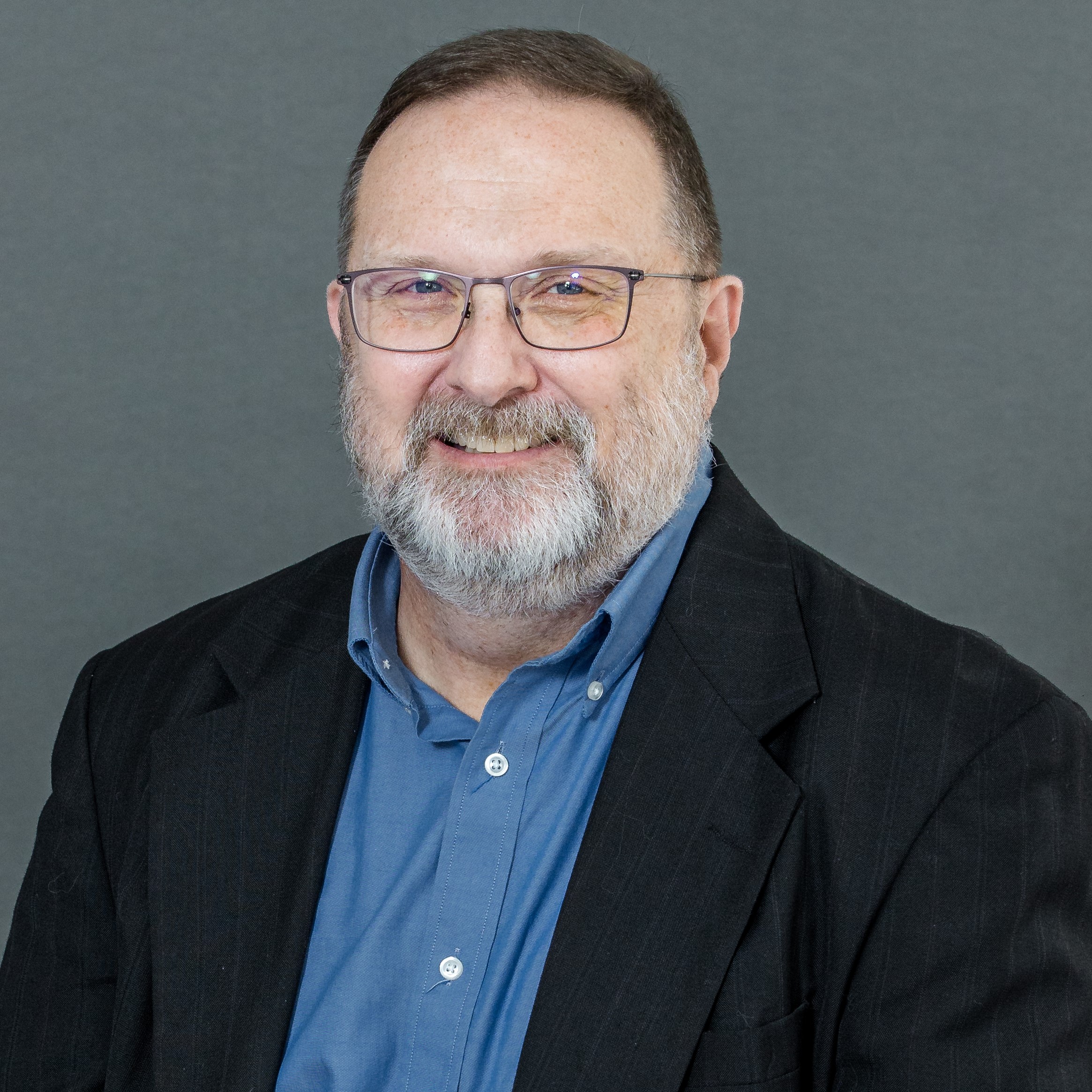 Chris Leach, Accounting Policy Analyst, NACUBO Chris Leach, Accounting Policy Analyst, NACUBO
Chris Leach, CPA, is Accounting Policy Analyst at NACUBO. In that role, he is a liaison with various NACUBO committees, FASB and GASB, and other groups. He assists with the development of NACUBO accounting guidance and research projects. Prior to joining NACUBO, Chris served as controller at both Texas A&M University-San Antonio and Washburn University. Before moving into higher education, Chris spent seven years in the financial services industry and 11 years as an audit senior manager with Deloitte. He holds both bachelor’s and master’s degrees in professional accountancy from Mississippi State University. Chris has been active in NACUBO, SACUBO, and CACUBO over the years, serving on many advisory and planning committees. He and his wife DeAnn live in Mississippi with their three dogs, two cats, and the occasional field mouse.
< Back to Schedule-at-a-Glance
Session 5B | FASB A&A Update for Private Institutions | 4:10 PM–5:00 PM
Accounting: 1 CPE Credit
Description
This session will provide you with an update on the latest development of new and proposed accounting standards issued by the Financial Accounting Standards Board (FASB) that impact private higher educational institutions and related foundations.
Learning Objectives
- Recognize recently issued Accounting Standard Updates (ASUs) their impact on not-for-profit intuitions of higher education.
- List specific areas that will impact your institution.
- Evaluate recent exposure drafts and pending standards projects
Speakers
 Matthew Socha, Partner, Not-for-Profit Industry Practice Leader, Cherry Bekaert Matthew Socha, Partner, Not-for-Profit Industry Practice Leader, Cherry Bekaert
As Leader of Cherry Bekaert's Not-for-Profit Industry Practice, Matthew provides audit, assurance, and advisory services to private and public colleges and universities, community and technical colleges, independent schools, foundations, religious organizations, associations, health and human service organization and other charitable organizations. Clients depend on Matthew for timely, practical guidance on many technical accounting and compliance issues, such as implementation of new standards, compliance with federal and state laws and grant programs, fair value matters, endowment accounting and not-for-profit industry insights.
Matthew serves organizations of all shapes and sizes, allowing him to advise clients on best practices and operating efficiencies as they continue to grow and enter new phases of maturity in their operations. Matthew is a frequent speaker on changes in audit and accounting standards that impact the not-for-profit and higher education environments. Matthew's education industry experience includes audit, assurance and advisory services for private and public colleges and universities, community and technical colleges, independent K-12 schools, educational foundation and charitable organizations. Matthew helped to develop the SACUBO benchmarking platform and is a recurring speaker at both the SACUBO Annual Meeting and Fall Workshop for the past five years.
|

 Bob Murray, Managing Director Retirement Solutions Higher Education, TIAA
Bob Murray, Managing Director Retirement Solutions Higher Education, TIAA Shelly-Ann Eweka, Senior Director, Advice Solutions, TIAA
Shelly-Ann Eweka, Senior Director, Advice Solutions, TIAA Masha Galchenko, Vice President of Resource Management & Analysis, University of South Florida
Masha Galchenko, Vice President of Resource Management & Analysis, University of South Florida Stacey Matthews, Vice President of Business Services and CFO, Flagler College
Stacey Matthews, Vice President of Business Services and CFO, Flagler College Michael Pepe, Budget Analyst, Flagler College
Michael Pepe, Budget Analyst, Flagler College Marc Pitcher, Director of Sales, Synario
Marc Pitcher, Director of Sales, Synario Ryan Ball, Higher Education Program Manager, Schneider Electric
Ryan Ball, Higher Education Program Manager, Schneider Electric Barry Wilhelm, Sales Team Leader, Schneider Electric
Barry Wilhelm, Sales Team Leader, Schneider Electric Theresa Butler, Vice President, Marketing and Student Experience, Aramark Collegiate Hospitality
Theresa Butler, Vice President, Marketing and Student Experience, Aramark Collegiate Hospitality  Derrick Magee, Associate Vice Chancellor – Campus Enterprises, Division of Administration & Finance, North Carolina Central University
Derrick Magee, Associate Vice Chancellor – Campus Enterprises, Division of Administration & Finance, North Carolina Central University Lisa Ennis, Director of Auxiliaries and Asset Management, University of Louisville
Lisa Ennis, Director of Auxiliaries and Asset Management, University of Louisville Russ Owen, Director, Client Relations, TruEd Consulting
Russ Owen, Director, Client Relations, TruEd Consulting Kelsey Harmon Finn, Vice President of Ambassador Community Relations, Compass Group USA
Kelsey Harmon Finn, Vice President of Ambassador Community Relations, Compass Group USA Seth Ferriell, CEO, SSC Services for Education
Seth Ferriell, CEO, SSC Services for Education John Summers-Miller, CFO, Chartwells Higher Education
John Summers-Miller, CFO, Chartwells Higher Education Jeremy DiGorio, Vice President of Finance and Chief Financial Officer, Stetson University
Jeremy DiGorio, Vice President of Finance and Chief Financial Officer, Stetson University Kimberly Lewis, Executive Vice President of Finance and Administration & Chief Administrative Officer, Louisiana State University
Kimberly Lewis, Executive Vice President of Finance and Administration & Chief Administrative Officer, Louisiana State University Disha Venkatesan, Regional Sales Executive, Syntellis
Disha Venkatesan, Regional Sales Executive, Syntellis Thomas Ewing, Senior Software Implementation Consultant, Syntellis
Thomas Ewing, Senior Software Implementation Consultant, Syntellis Chris Leach, Accounting Policy Analyst, NACUBO
Chris Leach, Accounting Policy Analyst, NACUBO Matthew Socha, Partner, Not-for-Profit Industry Practice Leader, Cherry Bekaert
Matthew Socha, Partner, Not-for-Profit Industry Practice Leader, Cherry Bekaert